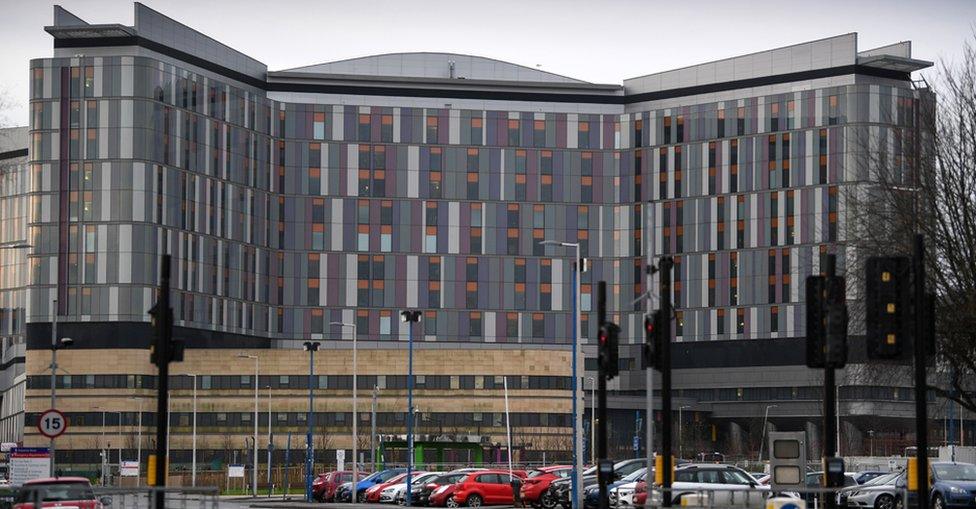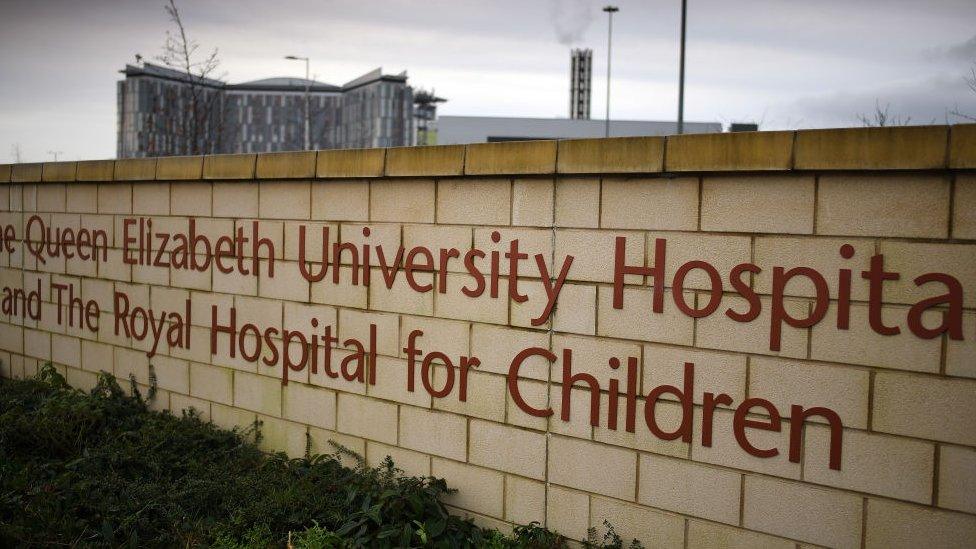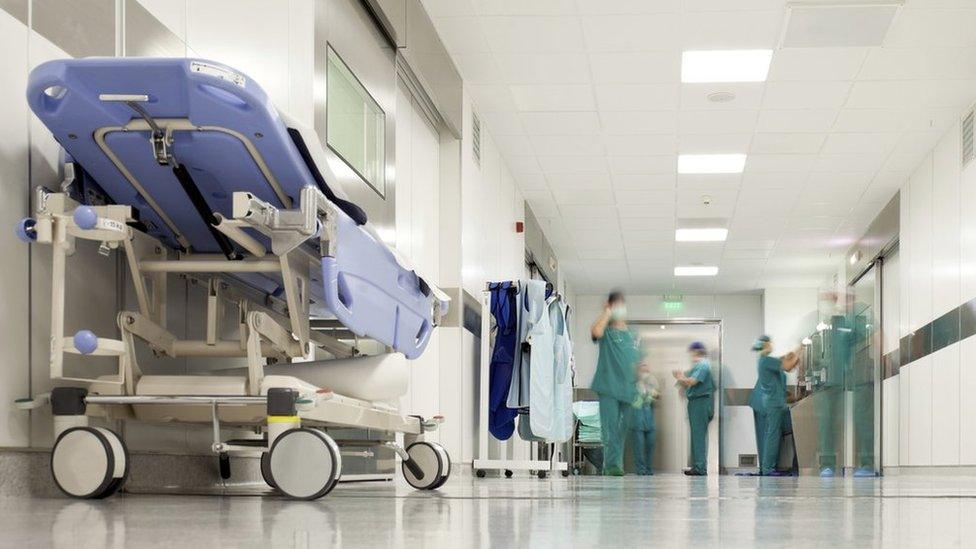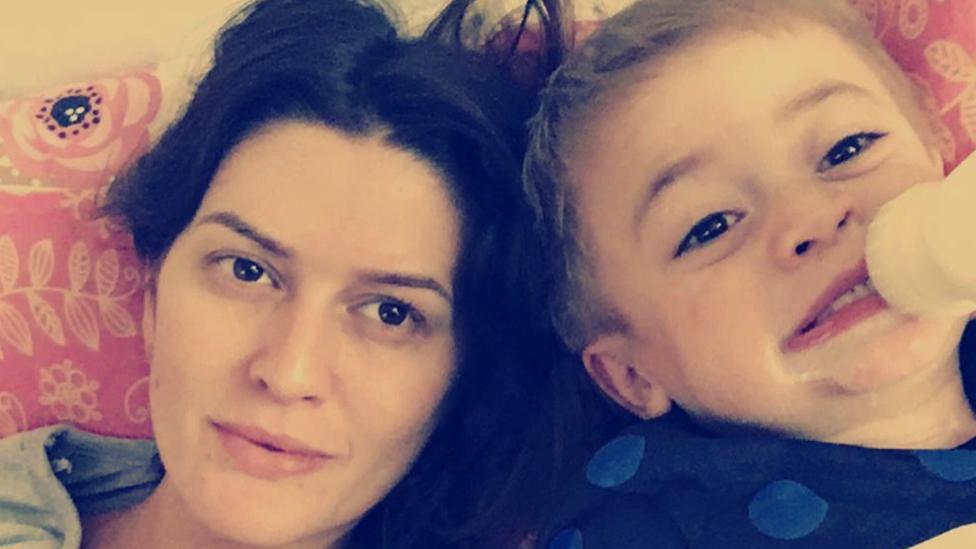Glasgow health board placed in 'special measures'
- Published
Jeane Freeman explains why health board is in "special measures"
Glasgow's health board has been placed in "special measures" following the deaths of two children at the city's largest hospital.
Health Secretary Jeane Freeman said NHS Greater Glasgow and Clyde would be escalated to stage four of the NHS Board Performance Escalation Framework.
This means an oversight board will be put in place, chaired by chief nursing officer Prof Fiona McQueen.
Ms Freeman said there were issues over infection prevention and control.
The move was welcomed by opposition MSPs who had been calling for the government to take greater control of the board.
Earlier this week Ms Freeman apologised to the parents of two patients who died in 2017 in the Royal Hospital for Children (RHC), which is part of the Queen Elizabeth University Hospital (QEUH) campus.
In a letter to the Scottish Parliament's health and sport committee on Friday, she said there were "ongoing issues" over infection prevention, management and control at the hospitals.
"I have concluded that further action is necessary to support the board to ensure appropriate governance is in place to increase public confidence in these matters and therefore that for this specific issue the board will be escalated to stage four of our performance framework," she said.

A stage four ranking means there are "significant risks to delivery, quality, financial performance or safety" and that senior level external support is required.
In her letter, Ms Freeman said the escalation would "ensure appropriate governance is in place to increase public confidence and strengthen current approaches that are in place to mitigate avoidable harms".
There will be specific support for infection prevention and control, communications and engagement.
When asked whether she had lost confidence in the health board, Ms Freeman told BBC Scotland it was "performing well" in a number of areas.
'Significant room for improvement'
She said: "In their clinical performance they provide excellent quality of care to patients across their area.
"But in this particular area of infection prevention and control and how they manage that, how they have governance around that, how they collect and use the data and in their engagement with patients and families - and by that I mean giving people the answers to their questions - there is significant room for improvement."
Scottish Labour MSP Anas Sarwar said the health secretary had taken the right course of action.
"The Glasgow health board is not fit for purpose, and this is a necessary step following the unforgiveable failings of senior management," he said.
"The focus now must be to tell parents, patients and the public the truth about infections at the hospital.
"I pay tribute to the brave whistleblowers who came forward to shine a light on the catastrophic failings in the hope that nothing like this can ever happen again."

The Queen Elizabeth University Hospital and the Royal Hospital for Children share a campus in the south of Glasgow
The health board and Ms Freeman have both apologised to the parents of two children who died at the hospital.
Three-year-old Mason Djemat, who was being treated for a rare genetic disease, died on 9 August 2017. Milly Main, 10, died three weeks later while recovering from leukaemia treatment.
Both children were treated on a ward affected by water contamination at the Royal Hospital for Children.
Their deaths emerged after Mr Sarwar was contacted by a whistleblower.
It also emerged on Friday that the NHS board has written to parents confirming that one of the wards affected will reopen for general admissions.
It explained there was "no evidence to support the continued restriction of new admissions" in the ward, and that new parent and staff facilities would be provided.
- Published22 November 2019

- Published22 November 2019
